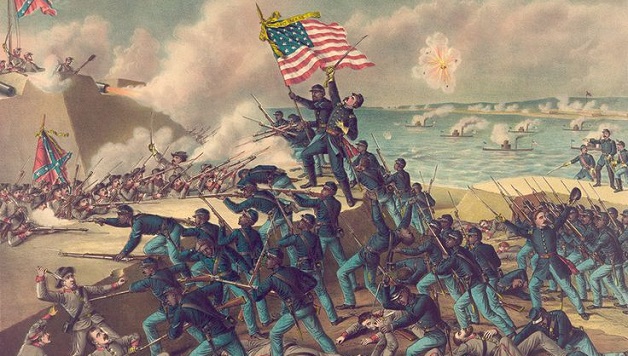
|
|

The Union victories at Gettysburg and Vicksburg in July, 1863,
marked a definite turning point in the war. Both sides now had seasoned, equally
valiant soldiers, and in Lee and Ulysses S. Grant each had a superior general.
But the North, with its larger population and comparatively enormous industry,
enjoyed a tremendous material advantage. Both sides also resorted to
conscription, even though it met some resistance.
Under Stanton, successor to Simon Cameron , the overall administration of the
Union army was more efficient. Problems of organization still remained, however,
and Henry W. Halleck continued in the difficult role of military adviser, with
the title of general in chief. The Joint Congressional Committee on the Conduct
of the War, organized in Dec., 1861, attempted to influence the actions as well
as the appointment of Union generals (its efforts were particularly strong on
behalf of Hooker). The chairman, Benjamin F. Wade, was frequently at odds with
Lincoln, and the committee's investigations and high-handed actions lowered
morale among the Union forces.
| Free Auto Guide | Free Coin Guide | Free Poker Guide |
| Home Guide | Vitamins | Harness Racing | Travel Guide | Hypnosis Guide | Credit Guide | Mega Coins | e-NetFlix |